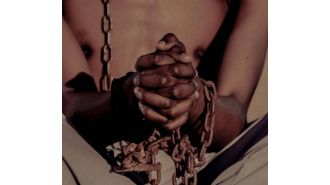We've altered our hair to fit a Eurocentric ideal of beauty.
Moved to UK, felt insecure about my coily hair at school with mostly white kids.

There's something powerful about embracing our natural features. I know this from experience; when I was younger, I desperately wanted to look like everyone else. I felt that if I could make my dark, thick hair more like the light blonde hair of the people around me, I would be more attractive to men. So I got highlights, but it was expensive to maintain and damaging to my hair.
Eventually, I decided I was fed up of hating my looks, and I started a ‘fake it till you make it’ attitude. I told myself that I liked my features, until one day I could say it truthfully. It took months of self-love work, and it was a relief when I finally decided to embrace my natural deep brunette.
It's not just me. Patience Chigodora, 30, living in Nottingham and London, also knows this. Growing up, her parents had her chemically relax her hair, intending to make it more ‘manageable’. When she moved to the UK and attended school with predominantly white children, she felt an insecurity about her coily textured hair that she hadn't experienced before. She wanted to fit into the mainstream beauty standards and draw less attention.
Patience continued relaxing her hair until the age of 23, enduring discomfort and scalp burns from the chemical treatments. Inspired by friends who had gone natural, she decided it was time for her to do the same. She realised that her hair was an integral part of her unique identity as a Black woman, and it was time to embrace it fully. She learned to appreciate the beauty of shrinkage, which she had disliked for so long, and take it as a sign of healthy hair.
Dr Roberta Babb, a HCPC registered clinical psychologist who specialises in racial issues, says it’s never just a superficial issue. The decision to change our hair to align with styles or colours typically associated with European hair may reflect a complex interplay of factors related to self-worth, identity, and perceptions of beauty. However, Dr Babb also points out that self expression is a valid reason for changing hair too.
After years of altering appearances, it can be empowering to go back to what’s natural. It can be a transformative experience as it represents a shift in the relationship a person has with themselves and their intersectional identity, self-worth and perceptions of beauty. Embracing our natural hair can signify a significant step in the personal journey toward self-acceptance, and can be a powerful visual statement that asserts pride in one’s heritage.
I can attest to this. I love my thick and dark hair now – bleach doesn’t come near it. I'm so glad I decided to embrace my natural features – it's been an incredible journey.










